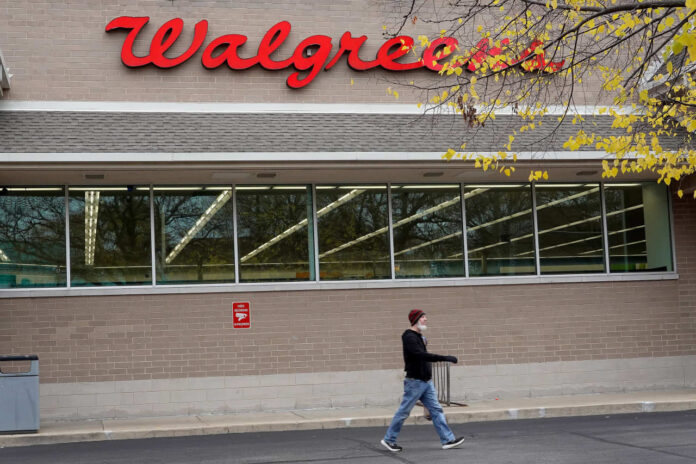The pharmacy allowed millions of opioid pills and other controlled substances to flow illegally out of Walgreens stores, the Justice Department said.
Shares of Walgreens Boots Alliance Inc. sank on Friday after the U.S. Justice Department sued the drugstore chain, alleging that for years it “knowingly” filled millions of prescriptions — including for excessive amounts of opioids — without a concrete medical reason for doing so.
In response, Walgreens
WBA
defended the company and its pharmacists, and accused the government of enforcing “arbitrary” rules that weren’t on the books.
Shares tumbled more than 9% after hours on Friday, after finishing regular trading 3.2% lower. As of Friday’s close, the stock was down 43% over the past 12 months.
The DOJ alleged that Walgreens, which has some 8,000 pharmacies nationwide, also illegally sought reimbursements from the government for those prescriptions. It accused the company of pressuring pharmacists to fill prescriptions quickly and without due diligence, and said pharmacists filled them despite “clear ‘red flags’ that indicated that the prescriptions were highly likely to be unlawful.”
“These practices allowed millions of opioid pills and other controlled substances to flow illegally out of Walgreens stores,” Brian M. Boynton, head of the Justice Department’s civil division, said in a statement.
The civil complaint was filed on Thursday in the U.S. District Court for the Northern District of Illinois. The Justice Department is accusing Walgreens of violating the Controlled Substances Act and the False Claims Act.
The alleged activity has gone on since around August 2012, the agency said. Walgreens could face penalties of as much as $80,850 for each unlawful prescription, as well as other damages, the government said.
Along with lawsuits stemming from a nationwide opioid crisis, drugstore chains have been dealing with inflation-weary consumers, falling reimbursement rates and competition from the likes of Amazon.com Inc.
AMZN
and supermarket chains.
The new lawsuit follows a similar one from the DOJ last month against CVS Health Corp.
CVS
In September, Walgreens agreed to pay more than $106 million to settle allegations that it billed the government for prescriptions it purportedly never dispensed.
In a statement responding to Friday’s lawsuit, a Walgreens spokesperson defended the company, saying it was seeking clarification from the court about the nature of the alleged violations.



